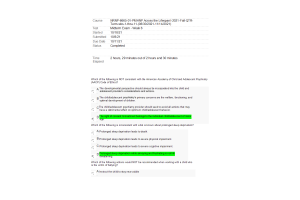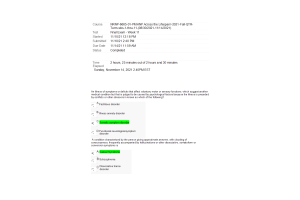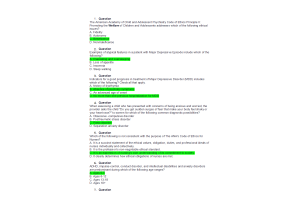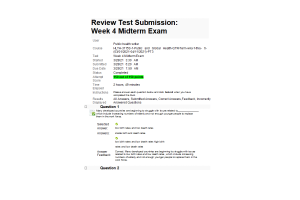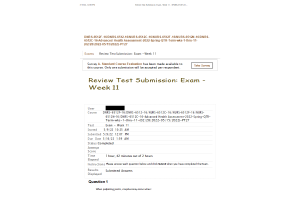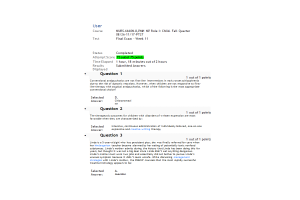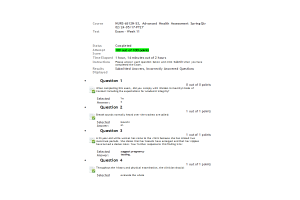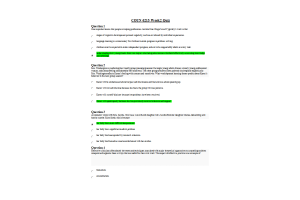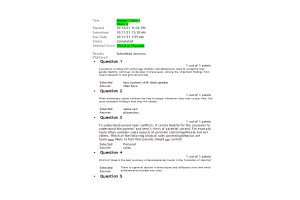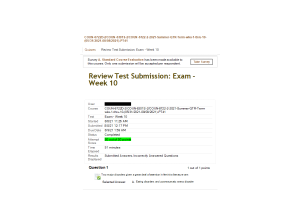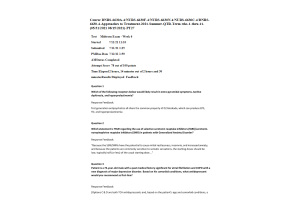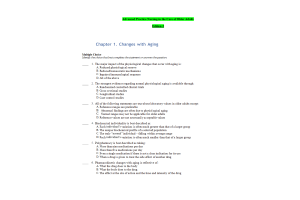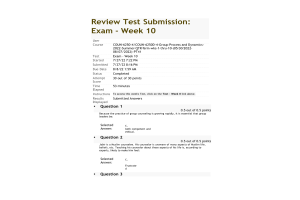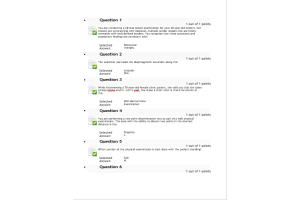NURS 6501 Week 11 Final Exam
- $39.00
- Question: What is the link between major depression and cortisol secretion?
- Question: A patient has chronic anemia associated with chronic renal failure. What substance does the healthcare professional tell the patient is needed to treat this anemia
- Question: What is the first indication of nephrotic syndrome in children?
- Question: A patient is in the Emergency Department with heat stroke. What finding does the healthcare provider associate with this condition?
- Question: Clinical manifestations that include irregular or heavy bleeding, the passage of large clots, and the depletion of iron stores support which diagnosis?
- Question: The health care professional is caring for a person who has a pathologic fracture. The patient asks the professional to explain the condition. What response by the professional is best?
- Question: A patient has a temporary displacement of two bones in a joint causing the bone surfaces to partially lose contact with each other. What treatment does the health care professional prepare the patient for?
- Question: Cystic fibrosis is characterized by which symptom?
- Question: An infant has gluten-sensitive enteropathy and the parents ask the healthcare professional to explain why the baby bruises so easily. The professional explains that the baby has which deficit?
- Question: A healthcare professional advises a pregnant woman to add supplements of which nutrient to her diet to prevent birth defects?
- Question: A mother reports that her young teens have voracious appetites. The healthcare professional would explain that which hormone is linked to an increase in appetite during puberty?
- Question: Why is nasal congestion a serious threat to young infants?
- Question: A student studying osteomyelitis and asks for an explanation of the term sequestrum. What response by the professor is best?
- Question: Which statement by the healthcare professional accurately describes childhoodasthma?
- Question: A patient has a spinal cord injury at C4. What should the healthcare professional assess as the priority in this patient?
- Question: Which cells function to maintain bone matrix?
- Question: To quickly assess a patient's nervous system for dysfunction, what assessment should the healthcare Downloadedby:
- Question: What is the effect of low plasma albumin?
- Question: Which immunoglobulin (Ig) is present in childhood asthma?
- Question: Which mother does the healthcare professional prepare to administer Rhimmune globulin (Rho-GAM) to?
- Question: A parent brings a 10-year-old child to the clinic and reports a mottled appearancetotheskinandlegscrampswhenthechildisinphysicaleducationclass.Physicalassessment positive for upper extremity hypertension. What diagnostic testing or treatment does the healthcare professional prepare the family for?
- Question: In order to help prevent a preadolescent girl from developing later cervicalcancer, which virus does the healthcare professional recommend vaccination against to the parent?
- Question: Which pain theory proposes that a balance of impulses conducted from the spinal cord to the higher centers in the central nervous system (CNS) modulates the transmission of pain?
- Question: A newborn baby displays jaundice 20 hours after birth. What action by the healthcare professional is most appropriate?
- Question: What causes the vasomotor flushes (hot flashes) that are associated with declining ovarian function with age?
- Question: In acute hypothermia, what physiologic change shunts blood away from the colder skin to the body core in an effort to decrease heat loss?
- Question: How does the epididymis become infected?
- Question: What are the clinical manifestations of testicular cancer?
- Question: A healthcare professional is discussing breast feeding with a pregnant woman. Which beneficial substance does the professional tell the mother is found in breast milk?
- Question: The disruption in cellular adhesion observed in bullous impetigo is caused by an exfoliative toxin related to which organism?
- Question: A patient has been exposed to prolonged high environmental temperatures and now shows signs of dehydration, decreased plasma volumes, hypotension, decreased cardiac output, and tachycardia.Whattreatmentdoesthehealthcareprofessionalpreparetoadminister to this patient?
- Question: A woman who is positive for hepatitis B is in labor. What action by the healthcare professional is most appropriate?
- Question: A healthcare professional is planning a community event to reduce risk of cerebro vascular accident (CVA) in high risk groups. Which group would the professional target as the priority?
- Question: A pregnant woman is seen for the first time at 6 months' gestation and has not taken prenatal vitamins. The healthcare professional educates the woman on the need for a blood test specifically to assess what substance?
- Question: A healthcare professional is seeing a patient with suspected schizophrenia.For which prenatal occurrence should the professional assess?
- Question: What congenital malformation is commonly linked to acute leukemia inchildren?
- Question: Parents bring their 1-year-old child to the emergency department, reporting that the child has been irritable and pounding on her head, has project ile vomiting, and seems very sleepyf ormostofthelast3days.Whatdiagnostictestingdoesthehealthcareprofessionalprepare the child and parents for as the priority?
- Question: A patient in the hospital has been receiving heparin injections. The plateletcountonadmissionwas222,000/mm3andfourdayslateris113,000/mm3.Whatactionbythe healthcare professional is best?
- Question: A healthcare professional works with recent refugees. A mother brings inher children who have been diagnosed with iron deficiency anemia. What action by the professional is most appropriate?
- Question: Which patient finding would lead the health care professional to assess the patient for inflammatory joint disease?
- Question: A student asks the professor what the most common patho physiologic process is that triggers a plastic anemia (AA).What response by the professor is most accurate?
- Question: A student is learning about pelvic inflammatory disease (PID). What information does the student clarify with a study partner as being correct
- Question: A patient in the healthcare clinic reports fatigue, weakness, and dyspnea, as well as pale conjunctiva of the eyes and brittle, concave nails. What assessment by the healthcare professional is most appropriate for the suspected anemia?
- Question: A patient is 8 hours postoperative after a long orthopedic procedure. The student asks why this patient is at particular risk of developing a thromboembolism. What response by the healthcare professional is best?
- Question: A healthcare professional suspects a patient is brain dead. How would the professional assess for brain death?
- Question: An adult patient has been hospitalized with thrombocytopenia with a plateletcountof8000/mm3.Whatactionbythehealthcareprofessionalismostappropriate?
- Question: A child with acute post strep to coccal glomerulonephritis is voiding smoky, brown-colored urine and asks the healthcare professional to explain what causes it. What explanation by the professional is best?
- Question: A patient has pernicious anemia and asks the healthcare professional toexplainthedisease.Whichstatementbytheprofessionalismostaccurate?>
- Question: In immunoglobulin G (IgG) nephropathies such as glomerulonephritis, IgG is deposited in which location?
- Question: A child has iron deficiency anemia. In addition to iron supplements, what else does the health care professional educate the parents on giving the child?
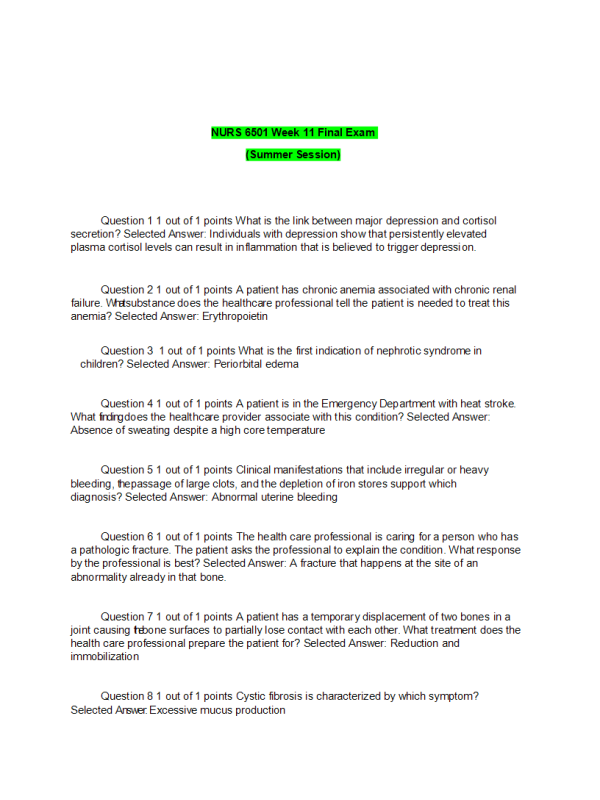
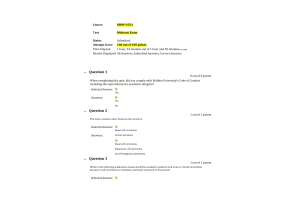
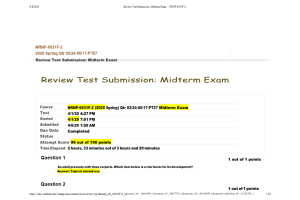
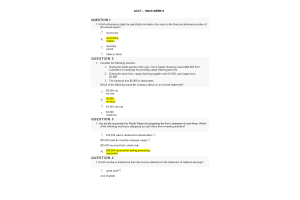
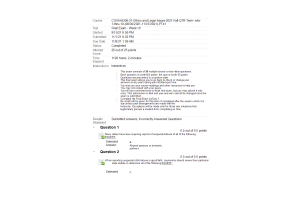
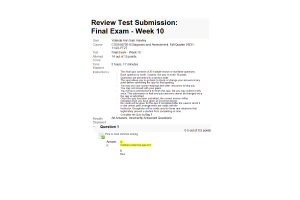
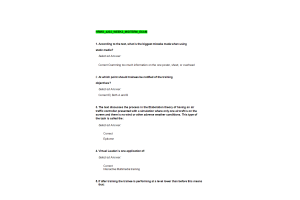
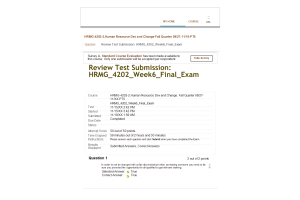
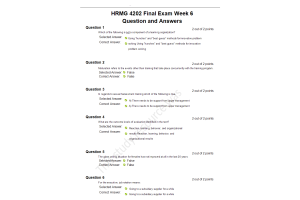
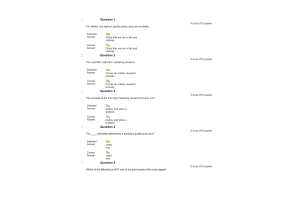
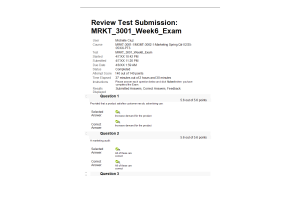
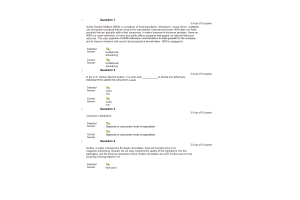
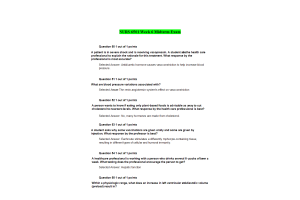

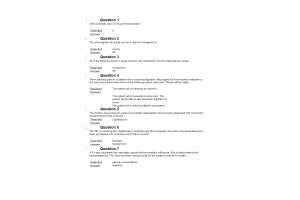
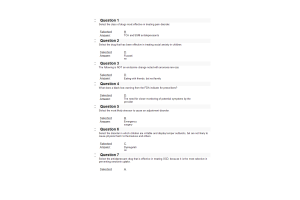
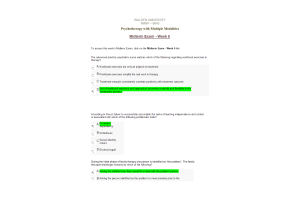
-300x200.png)
